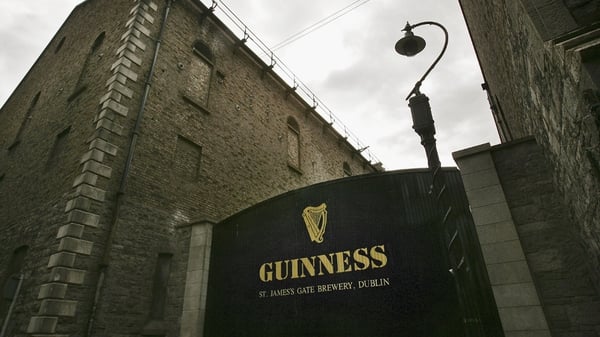Ireland's growth outlook remains positive after a strong rebound from the Covid-19 pandemic, the International Monetary Fund (IMF) has concluded.
However, the organisation has also said uncertainty around the outlook is high as indirect impacts from the war in Ukraine could be substantial due to rising inflation and weakening global demand.
In a report published following its annual review of the Irish economy, the IMF said growth is projected to slow from 13.5% last year to a "still robust" 7.5% this year.
"This is partly due to the envisaged deceleration of the IT and pharmaceutical sectors from their exceptional 2021 performance and the indirect impact of the war in Ukraine," it said.
"Several pre-pandemic challenges remain, including housing shortages, infrastructure, social and green investment gaps, and the need to strengthen MNE’s inward linkages to broaden growth and make it more inclusive."
The fund also found that the financial sector here weathered the pandemic crisis well because of the high capital buffers and effective policy support.
However, it also warned that uncertainty remains.
"Retail bank profitability is still lower than peers," the report claimed.
"Two retail banks are exiting but new non-bank lenders are entering the market. New risks have emerged, including from the rapid expansion of non-bank lenders, that have tripled their share of new mortgage lending over last two years (to 13% in 2021)."
The IMF also noted that Ireland plays host to a large market-based finance sector.
It said this requires enhancing risk analysis and "reinforcing regulation in collaboration with international partners."
The fund’s executive directors praised authorities here for the "careful withdrawal of their well-implemented pandemic support".
But amid current uncertainties they also encouraged the Government to pursue an approach of enhancing fiscal sustainability, strengthening the resilience of the financial sector and advancing reforms that help boost growth further.
They also welcomed the quick response from the Government to offset the impact of the rapidly increasing energy prices on both businesses and households.
However, they also suggested that any such additional measures should be aimed carefully at the most vulnerable.
The IMF also recommended that public debt should be kept on a downward trajectory over the medium term and said they saw merit in efforts to improve the sustainability of pensions and the broadening of the tax base.

The Minister for Finance said the report served as a very useful economic stock-take which helps shed light on the country's strengths and weaknesses.
"I note the Fund’s assessment of possible future challenges, notably higher-than-assumed price inflation and the economic fall-out from war in Ukraine," said Paschal Donohoe.
"In the Summer Economic Statement published this week, the Government also recognised these risks to our economy."
"In relation to inflation, the Government has responded swiftly and forcefully to mitigate the burden on households and businesses, with fiscal supports amounting to €2.4 billion."
"I would highlight the Fund’s view that the stance of budgetary policy for this year is broadly appropriate."
A separate Financial Sector Stability Assessment (FSAP) was also produced by the IMF, the second such report since the financial crisis.
If found that financial sector oversight had been considerably strengthened since the last study, with this being evidenced by "a successful navigation through the challenges of Brexit, the pandemic, and now the war in Ukraine".
But it also said there is a need for supervisory capacity to keep pace with the large, complex, and globally interconnected financial sector, as well as in new areas like climate, non-bank lending and fintech.
The organisation also said the macroprudential framework should be extended to cover risks from the growing non-bank sector.
The contents of the FSAP were welcomed by the Central Bank, which said it was a positive endorsement of Ireland’s continued advances in strengthening financial sector regulation, supervision, and crisis management.
"The review also underscores the important progress made in strengthening resilience of the financial sector over the past decade," said Governor Gabriel Makhlouf.
"Of course, as the financial system and the broader economy continue to evolve rapidly, we cannot stand still."






